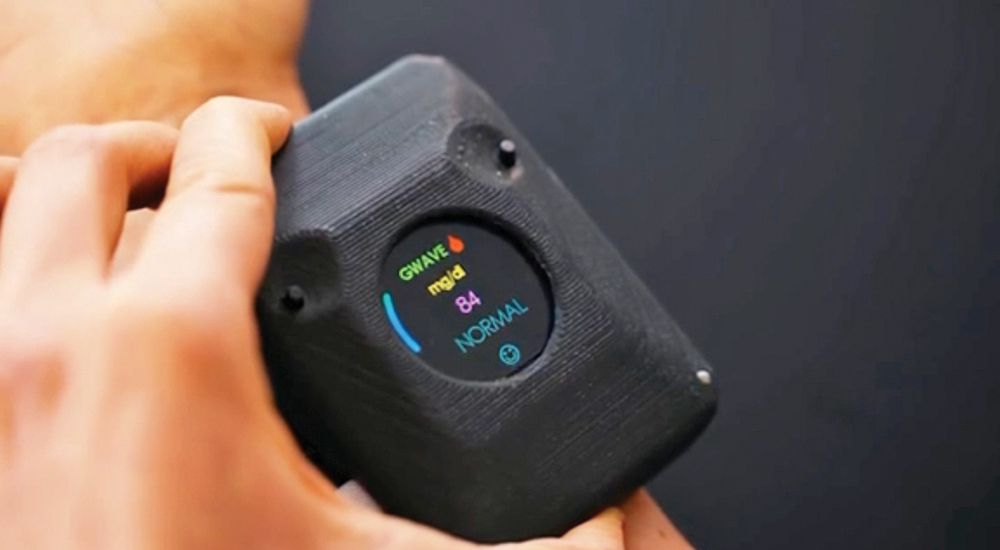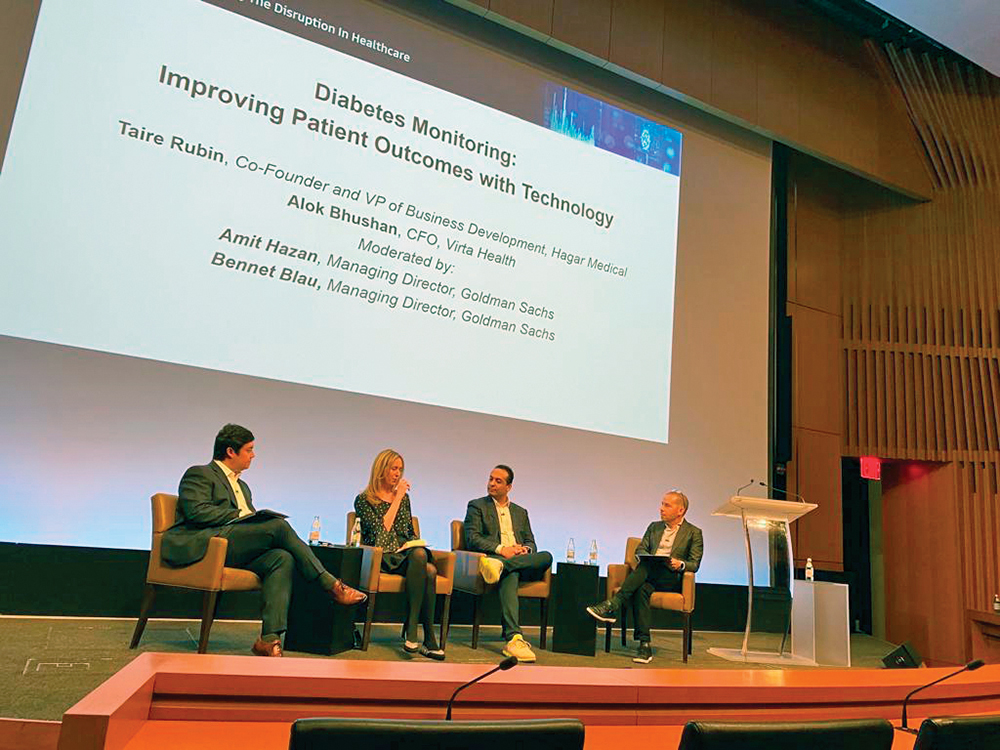
Jerusalem-born and Upper East Side-raised Taire Rubin is on a mission to improve the health and well-being of diabetes patients through innovative technology developed with Israeli ingenuity. Inspired by a love of Zionism instilled by her grandparents and parents, Rubin made aliyah in 2007 and grew a passion for the robust Israeli start-up scene driven by the big ideas of ordinary Israelis. In 2019, together with three other business partners, Rubin co-founded the Israeli start-up, Hagar, which introduced the GWave product that is developing what could be the first FDA approved noninvasive method to monitor glucose levels in the blood. Since then, Rubin has led the business development, marketing and capital funding for this blue-and-white product that has already received breakthrough designation status by the FDA.
Rubin shared that the technology for GWave was developed “by accident” when physicist and radio-frequency (RF) engineer, Dr. Gary Weintraub,spilled tea in his lab and observed that the glucose in the sugar was reacting strangely. Intrigued by this discovery, especially because his wife has diabetes, he began a variety of experiments and was able to detect glucose levels through radio-frequency waves. Dr. Weintraub approached Guy Zur, a retired IDF General with an engineering background, and Rubin and her husband Bentzi Gruber, a retired IDF Brigadier General with experience in the technology start-up sector and investment funds, to enlist their unique skill sets to further develop this technology and adapt it into a product that would be life-changing for diabetes patients.

According to the World Health Organization, 422 million people worldwide have diabetes. Monitoring glucose levels can be a time-consuming and uncomfortable undertaking that requires multiple blood tests throughout the day involving a needle. Other devices in the market known as Continuous Glucose Monitors or CGMs monitor glucose levels through a sensor with small needles that sit under the skin. These invasive devices also have their drawbacks because not all insurance companies cover them, and according to Rubin, there are often lags in read-outs of glucose levels because CGMs measure the interstitial fluid surrounding cells and not the actual blood. She calls GWave a “novel technology” because it is noninvasive, highly accurate and will be able to continuously monitor glucose levels in real-time. The technology is also a breakthrough for individuals who are diagnosed with pre-diabetes because the device will enable them to closely monitor their glucose levels at all times as a form of preventive care.
The team conducted three clinical trials in Israel at Sheba Medical Center at Tel HaShomer and at the Weizmann Institute for patients with type 1 and type 2 diabetes. The recent study with 75 participants resulted in a 97% match with traditional blood glucose tests, with only 3% showing minor deviations. The results of this study were published in the medical journal “Diabetes.”
Technology & Therapeutics
One of the members of GWave’s medical advisory board is Dr. Irl Hirsch, a renowned endocrinologist and professor of medicine at the University of Washington and the former chair of the Professional Practice Committee for the American
Diabetes Association. Dr. Hirsch explained, in a promotional video for the product, that there have been many attempts in the past for a noninvasive monitor of diabetes, but nobody has been successful until now.
Receiving FDA breakthrough designation status in 2021 was a significant nod of approval at this innovative technology. The team is lining up two additional studies that will take place later this year with the goal of continuing to perfect the product for the end-user.
The team plans to sell the technology to a larger company in the wellness or diabetes space that has the capacity to manufacture the technology and seek Full FDA approval. The end product will be a smartwatch that will connect to an app that can easily be shared with a healthcare provider. Rubin believes that this glucose monitoring product is only the beginning, and that there can be many additional applications of this technology to detect other critical components of the blood.
Rubin is very aware of the potential impact this product can have. Messages from around the world sent via GWave’s website include inquiries from diabetes patients asking when the product will be available so that they can live a better quality life. Binyamin Casper, a native of Teaneck now living in Israel who tested the product, expressed his optimism that the technology will drastically improve care by providing an accurate solution for the monitoring of blood glucose that is painless and simple. These anecdotes are especially touching for Rubin, who explains that they serve as a constant reminder to her “of all the people in the world that need this.”
Seventeen years after returning to her country of birth, Rubin feels a sense of pride that she is now part of the leadership team of a start-up that she believes will one day revolutionize medical care for diabetes patients. She is also proud to represent Israel at international technology innovation forums and diabetes conferences where she presents GWave as an example of Israeli ingenuity working to improve lives.
“So much innovation comes out of such a small country,” she said. “It truly is inspiring.”
Alisa Bodner is a Fair Lawn native who immigrated to Israel over a decade ago. She is a nonprofit management professional who enjoys writing in her free time.








